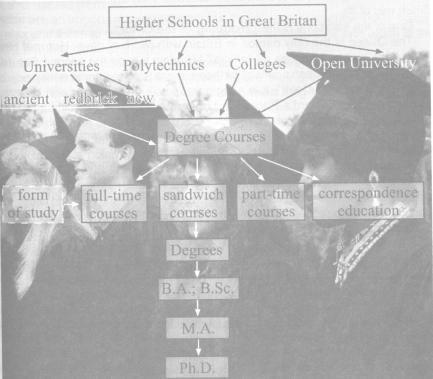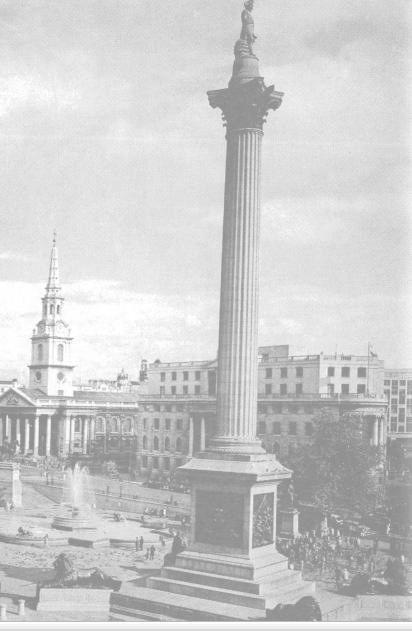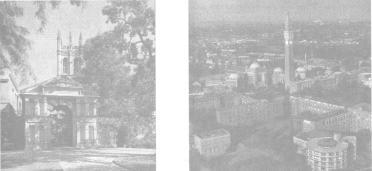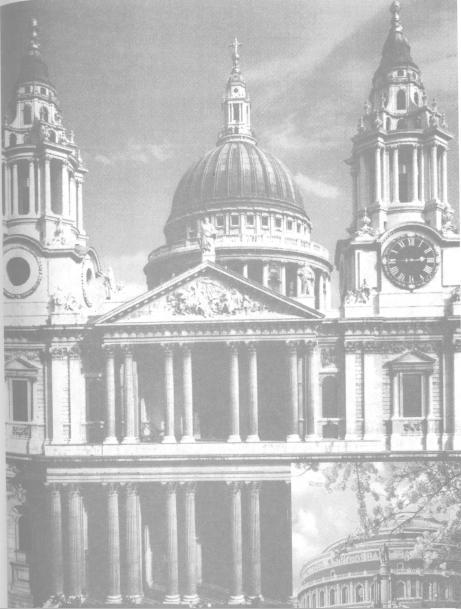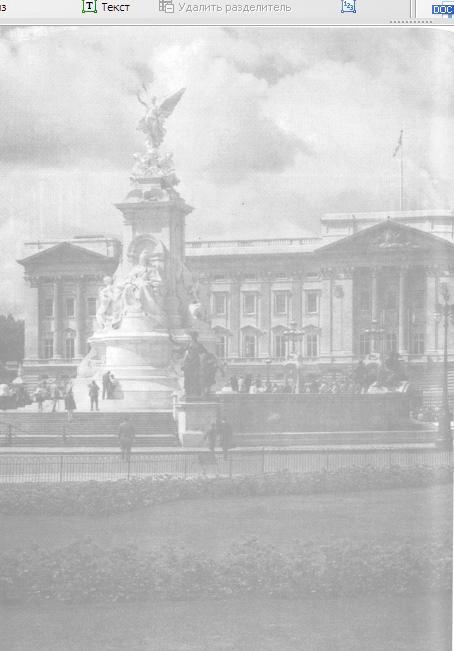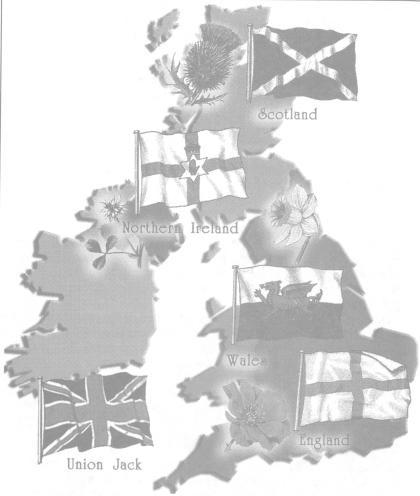
Английский методичка US&UK
.docx
|
Words and Phrases: settlement - поселение to establish - упрочить, устанавливать to spread - распространяться wide-spread- широко распространенный the number of - число second to - быть вторым после in the course - в процессе to make effort - прилагать усилия to increase - увеличивать to master a language- овладевать языков increase -увеличение patient -терпеливый one shouldn't forget - нельзя забывать rather - слишком
|
Tasks: 1. Answer the following questions: a. What types of universities are there in Great Britain? b. When were Cambridge and Oxford universities founded? c. What is the supreme governing body of the university? d. What can you say about the Open University? 2. Speak about: a. London University; b. your University. 4. True or False? a. british Universities are centers of research as well as teaching; b. Ural Universities are centers of research as well as teaching; c. colleges form an important part of higher education system, don4 they?
TRADITIONS Some British customs and traditions are famous all over the world. Britain hats, tea, talking about the weather for example. From Scotland to Cornwall, Britain is full of customs and traditions. A lot of them have very long histories. Some are funny and some are strange. But all of them are interesting. They are all part and parcel of the British way of life. One of the traditions is the "Trooping of the Color". The Queen is the only person in Britain with two birthdays. Her real birthday is on April 21st but she has an "official" birthday. It is on the second Saturday in June. And on the Queen's official birthday, there is a traditional ceremony called "The Trooping of the Color". It is a big parade with brass bands and hundreds of soldiers at Horse Guard's Parade in London, a "regiment" of Queen's soldiers, the Guards trooping the colour, march in front of her. At the front of the parade is the regiment's flag or "color". Thousands of Londoners and visitors watch Horse Guard's Parade, and millions of people watch it on television at home. The changing of the Guard. This happens every day at Buckingham Palace, the Queen's home soldiers stand in front of the Palace. Each morning these soldiers (the "guard") change. One group leaves and another arrives. In summer and winter tourists stand outside the palace at 11.30 every morning and watch the Changing of the Guard. The state opening of Parliament. Parliament, not the Royal Family, controls modern Britain. But traditionally the Queen opens Parliament every autumn. She travels in a golden carriage, the first Irish state Coach. In the Houses of Parliament the Queen sits on a "throne" in the House of Lords and reads the "Queen's Speech". |
|
The highest governing body of most universities is usually a Council consisting of a few professors together with some local notables. Each department has its chief who has usually the title of Professor. Other teachers who have no title of "professor" are entitled "Lecturers", "Readers", "Senior Lectures". When a university teaching post is vacant it is usually advertised in newspapers.
Words and Phrases: syllabus(es)- программа, расписание to approach - приближаться Bachelor degree - степень Бакалавра to comprise- включать Master - Магистр (уч. степень) instead of - вместо to confer to - предоставлять fee - взнос, пошлина, чаевые to adjust - приводить в порядок, приспособлять
|
|
|
|
enjoy a large measure of academic freedom. The University of London also refers to this group. It is rather old. It was given a Charter in 1836. Now there are about twenty colleges and schools of the university. The teaching is in the colleges, which are placed in various parts of London. It is the largest university in the country with over 40,000 students. The New Universities were founded after the Second World War. Some of them quickly became popular because of their modern approach to university courses. One of the new developments in education of Britain is certainly the Open University. Being founded in 1971 it offers a wide range of courses at many different levels. The Open University was established to give educational opportunities to those people who want to continue their education at home. In its teaching the Open University employs a combination of television, radio, correspondence tests, broadcasts and personal tuition. Colleges form an important part of higher education system in England and Wales. Colleges prepare young people for entry to specific job, or offer a specialist qualification. A college education is in most cases less academic and more practical than a university one, and usually vocational. They offer courses in teacher training, in technology and some professions connected with medicine. Polytechnics are fairly new. The government in 1966 established them in order to concentrate the large amount of work of university standard being done outside the university. 30 of the technical colleges became polytechnics and their popularity is growing. In many ways the polytechnics and universities are similar. But the former have more varied courses than any other higher educational institution. Any student has a wide range of choice, such as pure academic study, a study of an applied mature or a professional qualification. The Polytechnics play the main role in higher education. A degree is an academic qualification awarded at most universities and colleges upon completion of a higher educational course (a first degree) or a pi^e of research (higher degrees). In general Bachelor's degree [B.A. or B.Sc] is given to students who pass gxams at the end of three or four years of study. The first post-graduate degree is that of a Master conferred for a thesis based on at least one year's full-time work. And the degree of Doctor of Philosophy [Ph.D.] is given for a thesis, which is an original contribution to knowledge.
|
|
HIGHER EDUCATION IN GREAT BRITAIN There are different kinds of educational institutions in Great Britain including universities and colleges of various kinds. There is no single, universally accepted definition of what a university should be like. British universities are quite different 2nd each of them has its own syllabus. Universities usually select students on the basis of A-level exam results [Advanced Level] and an interview. But colleges of Oxford and Cambridge choose their students mainly on academic merit. All British universities can be roughly divided into three groups, namely "ancient", "redbrick" or "modern" ("provincial') and the new ones. But mostly each °f these universities has its own approach to teaching. Oxford and Cambridge are the oldest universities in Great Britain. They are called Oxbridge to denote an e|itarian education. They date from Middle Ages. Each consists of self-governing coHeges. Some colleges tend to be rather keen to admit a few men who are very 9°od at football or some other sport, or sons and daughters of lords or million-aires. After all a rich man's son or daughter will be rich one day and may give a lot of money to his (her) favourite university. Colleges are very rich. They have Wonderful books in the libraries, botanical gardens, observatory and an anatomy School and even rich collections of pictures. University is only an administrative body, which organizes lectures for all students of the colleges, arranges examinations and awards degrees. The teaching is based on the tutorial (that means the individual tuition) as well as lectures. Each student has a tutor who plans hi work and requires him to write essays and papers on the subject he is stuching, and submit them to him regularly about once a fortnight for correction апн discussion. Until the 19th century they were the only universities in England, апн offered no place girls. But, nowadays, most colleges admit both men and women Cambridge is more developed than Oxford in scientific studies. Four universities founded in Scotland i.e. St. Andrews (1411), Glasgow (1450), Aberdeen (I4g4) and Edinburgh (1583) are considered to be the ancient universities, too. During the 19th century various institutions of higher education were founded in large centers of industry such as Birmingham, Manchester and Leeds. Their buildings were made of local brick, so they got the name "redbrick". But today they are referred to as "modern" or "provincial". There is no tutorial system there. These universities accept students from all over the country and are financed by local authorities. The government gives money to cover the universities current expenditure, but doesn't control them and they |
BRITISH AND AMERICAN ENGLISH "England and America are the two countries separated by the same language." G. B. Shaw These two varieties of the English language are very similar to each other. Many people believe that these are the same languages with only a few minor differences in grammar, spelling and vocabulary. Differences in pronunciation are sometimes very noticeable, but most American and British speakers can understand each other without much difficulty. These differences emerged during the isolation of America from Great Britain in the 18th century. The United States had long been the "melting pot" of the world. People of many nationalities came to America and they brought their native traditions and languages with them. Those people adopted the English language and the very flexible English language took a lot of innovations from them. Differences between English and American English are rapidly disappearing nowadays. Modern British English is strongly influenced by American English. A lot of Americanisms from the language of advertizing, journalism, technology, rock music and show business have come into everyday speech of British people. There are too many common words which are spelled differently in England and the US, for example:
American I Word Translation | British thru_ через__ through_ caliber_ калибр_ calibre__ center__ центр__ centre_ fiber__ волокно__ fibre_ theater__ театр_ theatre_ check_ чек__ cheque_ program__ программа__ programme organization организация__ organisation honor__ честь__ honour_ behavior__ поведение__ behaviour_ labor__ труд_ labour_ traveler_ путешественник traveller_
|
|
But American English is not British, they say. Compare the list of some other words: _In America Word Translation _In England_ _railroad__ железная дорога__ railway_ conductor проводник ж.д.__ railway guard ticket window билетная жд. касса booking office gas__ бензин, газолин__ petrol_ fall__ осень__ autumn_ side-walk__ тротуар__ pavement_ subway__ метрополитен__ underground store__ магазин__ shop_ truck грузовик lorry elevator лифт lift
Such words as teen-ager, superpower, know-how, video, body building, shaping and a great deal of others are well-known all over the world. There are a lot of such words in Britain and American English. It is highly advisable for the people who learn English to know both forms of those words which are in most common usage.
Words and Phrases: similar - похожий, подобный teen-ager - подросток the same - одинаковый, похожий noticeable - заметный to believe - верить, полагать to advise - советовать to emerge - возникать, появляться advice - совет "melting pot" - зд.: смеситель advisable - рекомендуемый flexible - гибкий a great deal of - множество to adopt - принимать, усваивать a lot of - много innovation - новшество, нововведение variety -разновидность know-how - умение; знание дела; секреты производства
Tasks: 1. Answer the following questions. a. Are differences in pronunciation sometimes noticeable? b. What are the reasons of differences between modern British English and American English? c. Are differences between the two languages disappearing or increasing ? |
walking, jogging and running are forms of aerobic exercises, as well as dancing, swimming and cycling. Apart from being fun aerobics has a scientific basis. There are several beneficial effects. The heart becomes stronger and larger. Blood pressure drops and blood vessels also become stronger and more elastic. All this means that you are less likely to have heart attack. It will give you the healthy glen that is associated with fitness. Finally there's the question of weight. Research has shown that runners have weight less than nonrunners, even if they eat more, so aerobics will keep them slim, too. FREE SCHOOL School Rules: "You mustn't smoke or wear make-up". "You must do you home-work on time"' "You mustn't fight in the play ground". "You must... you must...", etc. Even if you like school, it seems that someone is always telling you what to do. That is why a lot of children don't like school and now a few teachers believe this is why some kids don't learn. People learn better and faster when they have ^ore choice in what they learn and when and how they learn it. At Free school, people believe that school should teach what the children need and what to learn. School should help a child to think for himself. There is no punishment for missing school. There are no compulsory lessons. Each child has one adult who follows his progress through the school. A lot happens outside school. They visit local factories, markets, shops, fire, police station. They visit exhibitions, go roller-skating, horse-riding, make trips to the country or the sea and go camping. They study special subjects such as photography, metal-work, pottery. Practical skills like painting and repairing a house are all done as part of the maintenance of the school. But there are very few Free schools in England.
|
|
to provide - обеспечивать teen-ager - подросток to respond - реагировать, отвечать age - зд. возраст
Tasks: 1. Answer the following questions: a. Does British education have many critics? b. When was the last Education Act adopted? c. Who is responsible for children's education in Great Britain? d. How many children and teen-agers study in Great Britain? 2. Draw a parallel between education in Russia and Great Britain. 3. Speak about your school years: a. your favourite subject or subjects; b. your school-mates; c. your favourite pastime.
THE TEEN-AGER CULTURE Most of the problems teen-agers are seeking to solve were created for them by adults. People forget that teen-agers belong to another generation, with all the changes and problems, but also new ones, of which parents are frequently unaware, but which teen-agers have to solve. It is not a new problem. What has appeared, probably for the first time in the Western world is a teen-ager Culture, a way of life with which teen-agers as individuals identify themselves and which they find meaningful. The songs, the lyrics, the records, the dances, the clothes and the like are evidences of a clear dissociation from the adult world. Teen-agers have declared their independence of the adult world. And in all this they are encouraged by the world of business. The teen-ager Culture is a very big business. Such phenomena as the Beatles and their innumerable imitations would be impossible without the support of teen-agers and their industry.
AEROBICS The magazines for teen-agers are a very profitable industry, and a large number of TV programs are designed for the same market. The "aerobics" Craze for Youth. Tens of thousands of people apply annually to run in the London, Manchester, Liverpool, etc. or other Marathons. Gymnasiums flourish today, people take up the "aerobic" system of exercise. You'll not find the word "aerobics" in many dictionaries but it means simply "with oxygen". "Aerobic exercise" is any form of exercises that increases your oxygen intake. Vigorous |
d. Is modern British English strongly influenced by American English nowadays? 2. Make up short dialogues about British and American English.
BRITAIN: PAST AND PRESENT Great Britain is a purely geographical name. People often use this name as the name of the country but it is not its direct meaning. Why is it called Great Britain? In France there is a peninsula called Bretaigne. When people from this province came to what they later called Great Britain they found some familiar conditions there and first of all its damp climate. Since this country was larger than their own Bretaigne they called it "Great Britain". The official name of the country is the United Kingdom of Great Britain and Northern Ireland. The United Kingdom includes four nations with marked differences: the Welsh, the Scots, the English and the Irish. Each part of the UK has its capital. The capital of England is London; Wales has Cardiff; Scotland has Edinburgh; the capital city of Northern Ireland is Belfast. Only those people who live in England call themselves "English", Scottish and Welsh are called "British people" or "British", and Irish people call themselves "Irish". Each country also has a national "emblem" or sign. The English emblem is a red rose. The Welsh emblem is a vegetable or flower - a leek or a daffodil. The Scottish emblem is a wild plant - a thistle. And the Irish emblem is another wild plant - a shamrock. The United Kingdom's flag is the Union Jack. It's red, white and blue. It is made of three flags-the crosses of St.George, St.Andrew, and St.Patric, which represent England, Scotland and Nothern Ireland. The British national anthem is God Save the Queen (King). Almost every nation has a reputation of some kind. The English are reputed to be cold, reserved, rather haughty people who do not yell in the street, make love in public or change their governments as often as they change their underclothes. They are steady, easy-going, and fond of sport. The fire is the focus of the English home. Even when central heating is installed it is kept so low in the English home that Americans and Russians get chilblains, as the English get nervous headaches from stiffness in theirs. Most English people have been slow to adopt rational reforms such the metric system, which came into general use in 1975. They do not want to trouble of adapting themselves to new. The conservatism may be illustrated by reference of the public attitude to the monarchy. The English are amongst the most amiable people in the world, they can also be very ruthless. They have a genius for compromise, |
|
but can enforce their idea of compromise on others with surprising efficiency. They are generous in small matters, but more cautious in big ones. The Scots, the Irish and the Welsh are not the English. They have a lot of in common but all of them have their own national spirit, national pride and they cherish their customs and traditions.
Words and Phrases: haughty people - надменные to get chilblains - получить озноб to yell - вопить, визжать stiffness - духота underclothes - нижнее белье to adopt - приспосабливать steady - постоянный ruthless - жестокий, безжалостный to cherish - лелеять easy-going - легкие на подъем cautious - осторожный generous - великодушный, благородный to house - вмещать headache - головная боль focus -центр amiable -дружелюбный to focus - сосредоточивать genius – дух
Tasks: 1. Render the text in your own words. 2. Draw a parallel between Russian and English. 3. Express doubts, hesitations or disbelief in the response to the text.
|
5. Make up mini dialogues in various situations: a. you have tea-party at home; b. at a cafe; c. at a restaurant. 6. Translate the following expressions and make up situations with them: a. Neither fish nor flesh; g. A hard nut to crack; b. As like as two peas; h. To stew in one's own juice; c. To know what is what; i. Appetite comes with eating; d. Chop-chop; j. Every cook praises his own broth; e. Tastes differ; k. Too many cooks spoil the broth; f. To save one's bacon; I. Eat with pleasure, drink with measure.
BRITISH EDUCATION British education has many critics and much of the criticism has a political basis. The system is supposed to provide equality of opportunity for all, but it has some inequality. The Education Act of 1944 was based on the philosophy that every child is to be educated according to his age, ability and aptitude. It places responsibility for carrying out this task on the shoulders of the school and the parents. Now, there are about 12 million children and young people in full-time attendance at schools, colleges and universities. The great majority of schools are publicly provided or aided. In Britain education is compulsory between the ages of 5 and 15. The academic year begins after the summer holidays and is divided into three "terms", with the intervals between them formed by the Christmas and Easter holidays. Day schools mostly work from Monday to Friday only, from about 9 a.m. to between 3 and 4 p.m. Lunch is provided and parents pay for it. 28% of all children stay at school beyond the age of fifteen, only 8 % of unskilled worker's children do so and only 1 % of children of unskilled workers receive full-time education beyond the age of eighteen, in comparison with 34 % of children of people in the professional class. This situation was generally regarded as unsatisfactory.
Words and Phrases: to suppose - предполагать responsible - ответственный great majority - большинство responsibility - ответственность to attend - посещать respondent - ответчик attendance - посещаемость compulsory - обязательный |
|
No self-respecting Briton would drink tea, which has not been made in a teapot in a civilized way. Why the Britons became addicted to tea when continentals favoured coffee is a mystery as yet unexplained. JOKES ABOUT TEA The English know how to make tea and what it does. Seven cups of it wake you up in the morning. Nine cups wilt put you to sleep at night. If you drink it in the afternoon, it wilt re/ax you for thoughts. If you are hot tea will cool you off. Then of course you should drink a lot of it in off-hours. If you are cold it will warm you up.
The taste of good tea is very simple. If a sp)oon stands up in a cup, it is strong. If a spoon starts to wobble, it is weak.
Words and Phrases: to pour - наливать pineapple - ананас stew - тушеное мясо amount - количество chop - отбивная котлета tea leaves - листья чая cauliflower - цветная капуста to oonfirm - подтверждать lamb - телятина to complete - завершать, заканчивать custard - сладкий крем tea-spoon - чайная ложка kipper - лосось (копченая рыба) tеа-pot - чайник для заварки чая apricot - абрикос tea-fparty - чаепитие substantial meals - питательная пища to infuse - настаиваться (о чае) part and parcel - неотъемлемая часть iquid - жидкость well-to-do family - хорошо обеспеченная семья tart - домашний торт, сладкий пирожок
Tasks: 1. Render the texts about food in your own words. 2. Exchange ideas after reading articles about foods. 3. Compare Russian cuisine with English one. 4. Answer the questions: a. How do you make tea? b. How do you make coffee? c. How often do you have your meals?
|
|
|
|
Sunday dinner is a special occasion, (week-end). Beef or lamb are brought and eaten hot with vegetables. After this a large heavy pudding with custard will probably follow. Dessert may consist of fruit or many varieties of pies and tarts. They are eaten hot or cold. There is the order of meals among English families. But the greater part of the people in the towns, and nearly all country-people, have dinner in the middle of the day instead of lunch. They have tea a little later between five thirty or six-thirty, and then in the evening, before going to bed, they have supper. So, the four meals of the day are either breakfast, dinner, tea, supper or breakfast, lunch, tea, dinner. Legend about tea and coffee Coffee and tea were not known in Europe three hundred years ago. People were afraid to drink them because they thought coffee or tea could kill a person. Once a King of Sweden decided to find out whether it was true or not. At that time there were two young brothers in prison. They were twins and were very much alike. They had committed a crime and had been sentenced to death. The King said: "I'll let them live but they must drink coffee or tea to the end of their lives. One must drink tea and the other coffee". Very soon the King died. Both brothers Nved for many years. So, the length of the life does not depend upon drinking either coffee or tea. In the days of Elizabeth beer was the normal breakfast liquid. By 1700 the English became a tea-drinking nation. The English are famous for the amount of tea they drink, "a nice cup of tea" is one of the most commonly heard phrases in Britain. Most of English people drink their tea, but give little thought to what actually happens when they pour water over tea leaves. Three of substances contained in the tea leaves come out of the leaves into the water. Theoflavins give the tea its color, theorubigins affect its taste and caffeine makes tea a stimulant. Scientific research confirms that using waiter, which is as near boiling point a possible gives the best cup of tea since it brinigs out more of all those substance from the tea leaves. But, however, hot watetr will always take a few minutes fa the process to be completed. The hostess firrst of all must rinse the tea-pot with boiling water (this is called "warming the pot'") before adding several tea-spoons of tea. The amount of tea varies, of course, according to the number of the peop|e present plus one spoonful for the tea-pot. The pot is then filled to allow the tea to infuse or draw for five minutes English peoplle seldom put lemon juice or rum in their tea. |
|
Tasks: 1. Answer the following questions. a. Which is the most popular of spectator games in Great Britain? b. Which is the most popular sport for both men and women? c. What is Wimbledon known for? d. Is it legal to place bets in horse-racing in Russia? e. What kind of sports can be called a "nation hobby" in England? 2. Speak about Russian sports. FOOD Customs and traditions always held by the Englishman are present in his eating. He is used to certain foods and never tires of them. There are four meals a day in English home: breakfast, lunch, tea, and dinner. Breakfast is the first meal of the day. It is about 8 o'clock in the morning, and consists of porridge with milk rarely with cream and salt or sugar, cornflakes, eggs boiled or fried, bread and butter with marmalade or jam, bacon or sausage, or liver, or cold ham, toasts. Breakfast toasts in England are traditionally cold. Some people like to drink tea, but others prefer coffee, though tea is part and parcel of British life. Instead of porridge they may have fruit juice, or they may prefer biscuits. The midday meal is called lunch. The usual time for lunch is 1 p.m. This meal starts with soup or fruit juice. Then follows some meat or poultry with potatoes - boiled or fried, carrots, cabbage, cauliflower, and peas. Meat is rather expensive in Britain. Rice and macaroni are seldom served. Then a pudding comes. Instead of pudding they may prefer cheese and biscuits. Last of all coffee I black or white. Englishmen often drink something at lunch. Water is usually on the table, but some prefer juice or lemonade. Tea is the third meal of the day. It is between 4 and 5 p.m. the so-called5 o'clock tea or high tea; it is also a substantial meal and is eaten by families, which do not usually have a late dinner. On the table there is tea, milk or cream, sugar, bread and butter, cakes and jam. In well-to-do families it consists of ham or tongue, tomatoes and salad or a kipper, followed by fruit: pears, apricots, pineapples, strong tea with cream and a cake. Friends and visitors are often available at tea. Tea making in England is an art. Dinner is the fourth meal of the day. The usual time is about 7 p.m. and all the members of the family sit down together. Dinner consists of soup, fish or meat with vegetables, potatoes, green peas, carrots and cabbage, sweet pudding, fruit salad, ice-cream or cheese and biscuits. Then after a talk they have black or white coffee. |
THE ROLE OF THE MONARCHY The age of democracy has not produced any significant revolutionary movement in Britain. The monarchy survives, but has no power and does not want any Parliament to establish its rights. The powers of the Queen are nowhere exactly defined. Theoretically every act of the state is done in her name; every letter sent out by any government department is posted in an envelope marked "On Her Majesty's Service". All ministers in the Government are appointed by her. But in reality everything that she does is done "on the advice of her ministers". Laws passed by two Houses do not become affective until she has signed them.
|
|
The Queen Elizabeth II was born in London 21 April 1926. She was crowned at Westminster on the 2 of June in 1953. She was the sixth Queen Regnant of Britain and second of her name. Today the Queen is not only the head of state, but also an important symbol of national unity. Great Britain is a constitutional monarchy, i.e. the power of the Queen is limited by the Parliment. But the real power is concentrated in the hands of the great trusts and banks and the tiny section of rich property owners. They control the land, industry, finance, trade, armed forces, police, judiciary and mass media. The Monarchy is used by the ruling class as an ideological weapon of maintaining the stability of the regime. In the law the Queen is the Head of the Executive, the Legislative and the Judiciary. She reigns, but does not rule, although the Queen is the third richest woman in the world.
Vocabulary: significant - значительный to crown - короновать to survive - выживать in the law - по закону to appoint - назначать although - хотя appointment - назначение, встреча to reign - царствовать
Tasks: 1. Answer the questions. a. What is the first name of the Queen? b. Whom does the real power belong to in the UK? c. What do banks and trusts control? 2. Make up short dialogues about the Role of Monarchy in the United Kingdom.
The Queen Mother, Elizabeth Bowes Lyon was born in 1900 at the very birth of the century. In her life she has been the greatest witness to the history. Two global wars. Many personal tragedies. Considerable triumphs. The creation of new sort of world, which has moved from horse and carriage to space travel, from ink pens to computers. Her eyes have seen it all. Around her are the Royals. Diana was her favourite. The Queen Mother helped her a lot. In 2000 she was 100 and celebrated her birthday together with all Great Britain. But the Queen Mother died in 2002. The story of Diana, Princess of Wales, began when she was just 16 years old and met her future husband Charles, Prince of Wales, when he joined a shooting party at her family home when she was a shy teen-ager. But on September 8, 1980 her life changed forever. The shy teen-ager blossomed into a Royal Bride. She adored children and soon she became a mother. William was born on June 1982 and Harry two years later. She never handed her sons to nannies. She was |
immensely - безмерно (очень) to research - исследовать owner - владелец researcher - исследователь night-gown - халат, пеньюар research - исследование
Tasks: 1. Draw a parallel between pets in Russia and Great Britain. 2. Render the text in your own words. 3. Speak about your favourite dog (cat, cage bird, or aquarium fish). 4. Speak about your garden, if any. 5. Speak about the flower language. SPORT IN GREAT BRITAIN British people have always been known for their love of sports. Some people Jake part in sports themselves, others are only spectators. But there are few Brit-lsh People who have absolutely no interest for sports. The most popular game for men are golf and cricket in summer andfootball in Winter. Every schoolboy knows the names of the best teams and their players. A crowd of loyal fans usually go after their favourite team to other towns to sup. port the players. Football is the most popular of spectator games in the UK. дм kinds of racing come after football: horse-racing, dog racing, motor racing ana boat racing. It is legal to place bets on the participants. Tennis is played by both men and women all the year round, on grass courts in summer and on covered courts in winter. Many people like to watch tennis instead of playing. The Wimbledon championships in winter in which the best tennis players of the world take part attract crowds of people. Boxing is popular in Great Britain as well. But many British people consider boxing too rude and cruel and boxing for women and children is forbidden now. Sport in one form or another takes part in an average British person's daily life. In English schools sport is an important part of the system of education. Every student can go in for basketball, football, volleyball, table tennis, tennis, wrestling and karate. They care strongly about sporting spirit.
Words and Phrases: spectator -зритель cruel -жестокий team - команда rude - грубый to support - поддерживать to care - заботится, ухаживать to play bets - держать пари to care for - интересовать fen - болельщик, любитель care - забота, попечение |

